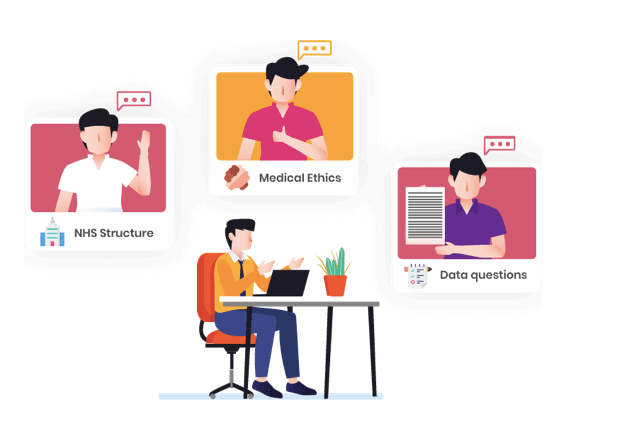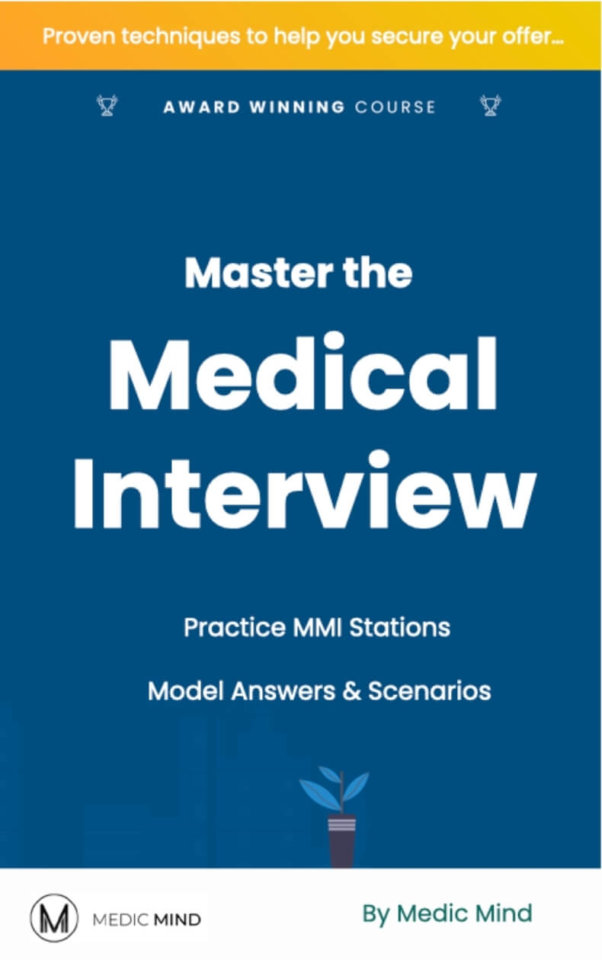Loading...

10 Tips for MMI Interviews
1. Treat each station independently
Each station will have a different interviewer so you will have a clean slate for each question. If you mess up one of the stations, don’t let it affect the following stations. Take a deep breath and move on!
2. Make a good impression
It is difficult in the short time that you have, but remember to be enthusiastic and passionate at each and every station.

3. You can re-use content
you can use the same example for multiple answers. If you are asked about teamwork in one station and passion for medicine in another, you may find that you have an example that shows both, so why not use it for both? You won’t be penalised for using the same example because it is a different examiner at each station.
4. Research each specific university
Each university will focus their stations on different topics. In addition to this, it is important to know as much as you can about the university’s medical school that you are having an interview at. At Medic Mind we have heavily researched all the different medical schools, their selection processes and their interviews, so be sure to check out our other resources!
Kickstart your Interview Prep
5. Be prepared to act
A classic MMI station is a role play scenario, often undertaken with an actor, so be prepared to have a simulated experience of breaking bad news to someone. It won’t necessarily be in a clinical setting, an example could be telling someone you have lost their dog, or admitting to a mistake you have made in a project.
6. Know your personal statement inside out
At an MMI, it is unlikely that the interviewers have read your personal statement, but that doesn’t mean that there won’t be a question based on something you have spoken about in your personal statement. So don’t be caught out by not having brushed up on what you have previously told the admission team.
7. Be natural
You don’t have long at any MMI station, and as we said before, it is important that you leave a good impression, so don’t rely on a script. Although it is important to be well prepared for the questions you will be facing, it is just as important to not sound like you are reading a pre-prepared script. To do this, make sure you are comfortable with the content you wish to discuss at interview, and practice phrasing it differently for a variety of questions. Maybe even record yourself and watch it back, this is a great way to see first hand if you are coming across natural in your answers.
8. Use your time effectively
Make sure you are aware of how much time you have at each station. It is unlikely that the interviewer will guide you with regards to how much time you have left at the station. If the question asks you to discuss 3 skills, then don’t spend most of your time discussing your first skill, leaving little to no time on the other two. By dividing your time up evenly you will be more likely to score highly, as you have covered the whole question.
9. Identify what the question is really asking you
This does take a bit of practice, which is why it is so important to prepare well for your interview. Getting to the bottom of what the question is really asking you in relation to wanting to study medicine is key to scoring highly at interview. For example, a question asking why don’t you want to be a nurse? Is still asking you why do you want to be a doctor? However it is also looking for you to distinguish between the two job roles. In this question, for example, you don’t want to spend all your time explaining why you aren’t applying to nursing school, but instead focus on the differences between a nurse and a doctor, and why being a doctor is more appealing and better suited to yourself.
Kickstart your Interview Prep
10. Practice, Practice, and Practice
it may seem obvious, but the more practice you do, the better chance you have a performing well. You probably won’t have been to an interview like this before, and chances are you won’t have had to deal with difficult patients, or break bad news. For these sort of scenarios ask family and friends to help you by playing these roles in some role plays. Make the stations up yourself, or practice with a tutor.
Frequently Asked Question
→What is an MMI interview?
An MMI (Multiple Mini Interview) is a type of interview used by medical schools and other healthcare-related programs to assess applicants’ communication, critical thinking, and problem-solving skills.
→What are some tips for preparing for an MMI interview?
Some tips for preparing for an MMI interview include practicing with sample questions, researching the program and the interview format, and practicing time management and organization skills.
→What is the format of an MMI interview?
The MMI interview consists of several stations where applicants are given a scenario or question and are expected to respond within a set amount of time.
→What types of questions can I expect in an MMI interview?
The questions in an MMI interview are typically scenario-based and can range from ethical dilemmas to situational judgment questions.
→How should I approach scenario-based questions in an MMI interview?
It is recommended to approach scenario-based questions in an MMI interview by first understanding the scenario, identifying the key issues, considering different perspectives, and providing a well-reasoned response.
Related
Related Articles
Personalised 1-1 private lessons, tailored to your GAMSAT needs
With over 1000 GAMSAT questions, worked examples and mock run-throughs - your complete GAMSAT course!
Prepare for the GAMSAT with a full day of expert GAMSAT tuition, learning the tips and tricks to boost your score to the maximum.





Was this article helpful?
Still got a question? Leave a comment
Leave a comment
366 Comments
AnonymousMedic Mind Tutor
3 January 2021
very good